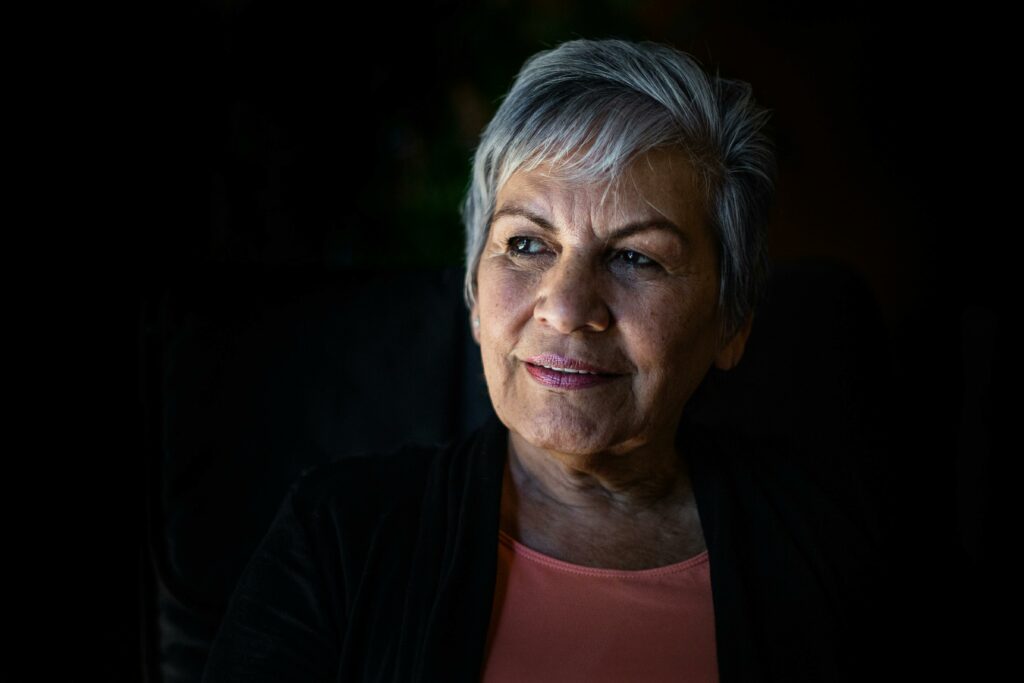Ms. Rachel lives in St. Pete with her two grandchildren. She has been raising her grandchildren alone for the past seven years. She discovered Daystar and began coming to our healthy food pantry four years ago. Every month, she struggles to make ends meet due to being on a fixed income. She is receiving social security disability, and is unable to work due to her disability. Rachel’s story highlights the everyday stress many face when they constantly have to worry about having enough money to pay bills and have food that will last their family the entire month. This is her story.
Ms. Rachel is currently receiving Social Security disability benefits. She used to have a job, but one day, after finishing her shift and heading home, she was robbed and shot three times. Thankfully, she was able to recover, but she was left with a permanent disability that now prevents her from working. She is raising her two teenage grandchildren and qualifies for a small amount of monthly food stamps. Unfortunately, this assistance only covers about two weeks’ worth of food for three people, including two growing teens.
“We mostly eat sandwiches, toast, and noodles,” Rachel says. “Sometimes we end up eating noodles for a week. And sometimes, I don’t eat so I can feed them. I’ll skip lunch and just drink tap water to try to stay full as long as they can have something to eat.”
The cost of food at most grocery stores is too high for Ms. Rachel’s limited income. She can’t afford certain kinds of food and has to make tough decisions each time she goes shopping, often choosing generic, low-cost foods that can stretch for days. Although she enjoys eating broccoli, cauliflower, and salads with fresh vegetables, she has to consider the longevity of purchasing fresh produce versus other foods. She knows that salads and veggies will be gone in a day or two, but she can buy chicken and make a dish that will last longer. “Whenever I cook, we try to eat half and save the other half for the next day, so the kids have something when they get out of school.”
When shopping, Rachel uses coupons and looks for foods that are close to their expiration date because stores usually discount those items. She is always searching for deals and discounts to stretch her grocery budget as far as possible. Without a vehicle, Rachel walks to and from the grocery store, which limits how much food she can buy and carry home. Sometimes her grandkids help, but often they are in school.
“The hardest thing for me is that it’s heartbreaking because I feel like I can’t give them what they want. My granddaughter loves playing sports, but she’ll say, ‘Grandma, you know I’ll be too hungry out there.'” Despite being a straight-A student, Rachel’s granddaughter struggles with hunger, and it pains Rachel that she can’t always provide the proper food.
Having her grandchildren living with her, combined with the rising cost of nearly everything, contributes to Rachel’s stress and anxiety. When she’s shopping, she notices what others have in their carts and feels embarrassed about her own cart filled with generic, processed foods.
“With a low income, you can’t eat properly. That affects my health and stress every day. I wake up in the morning, and the stress hits. Even when I want to be happy, in the back of my mind I’m thinking, ‘What am I going to do? Will the lights go off? Will the water be turned off?'”
The stress can be overwhelming.
During the holidays, Rachel and her grandchildren are often invited to neighbors’ houses for festive meals. However, Rachel feels anxious about indulging or letting her grandkids indulge because she worries that they will want that kind of food afterward, and she knows she can’t afford it. “I try to get them used to the life they are living, so they won’t expect much else.”
At Daystar, Rachel and her grandkids receive fresh, organic produce from our food pantry farm as part of their groceries. Thanks to our partnerships with Feeding Tampa Bay, local community food drives, and Publix Markets, they receive healthier pantry items, bread, eggs, and additional produce. We understand the importance of nutrition and are committed to breaking the cycle of poverty and nutritional insecurity.


